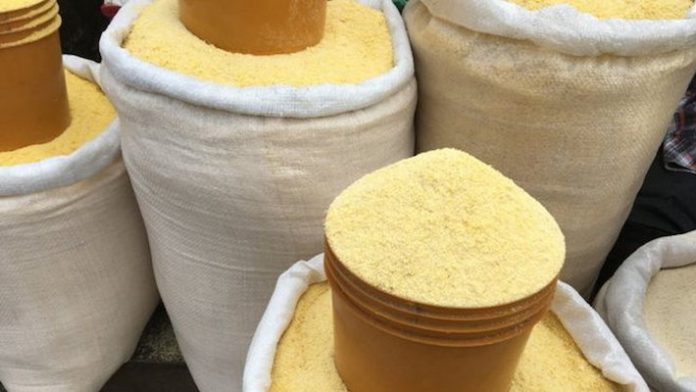WHAT appeared to be a message of relief came to Nigerians recently. According to media reports on the findings by The News Agency of Nigeria, NAN, prices of staple food items like garri, yam, pepper and others have fallen in Anambra, Enugu and Ebonyi states. The relief content of the report emanates from the comparison between it and the earlier position of the National Bureau of Statistics, NBS, stating that the headline and food inflation declined to 33.40 percent and 39.53 percent respectively in July, 2024. This indicates a departure from what they were in June – 34.14 and 40.87 percent in the same order.
Specifically, NAN’s findings show that a bag of garri in these areas fell to about N75,000 in July as against about N90,000 it sold for in June this year. On its part, a bucket of tomatoes which sold for N90,000 in June reduced to between N80,000 and N85,000. The same investigations equally show that the prices of other staple food items such as rice and beans are yet to witness any form of decline. The scenario created here tallies with those of other parts of the country.
With government policy of granting zero import duty waiver for edible items like husked brown rice, grain, millet, maize, wheat and beans with effect from August, 2024, food prices are expected to further decline in the months ahead.
In the midst of all these, many experts in the country have continued to find faults in the position of the National Bureau Of Statistics, NBS. They argue that a fall in inflation do not necessarily translate to a fall in prices of goods. Rather, it can mean the reduction in the rate of price increases. These people hold the view that the fall in prices, if at all can be as a result of the setting-in of harvest periods for yam, garri and others. For Mr. Okechukwu Unegbu, a former president of the Chartered Institute of Bankers in Nigeria (CIBN), the core and food inflation rate in the country is above 36 and 40 percent respectively.
Meanwhile, there are indications that these positive postulations on inflation rate in the country may not stand the test of time. The reasons for this are not far-fetched. For instance, since the rising inflations were not sector-by-sector-induced, it can only be logically correct to assume that isolating and tackling the scourge in segments cannot resolve the economic menace. Simply put, if it has been agreed that the current economic hardships were induced by the government’s policy on petroleum subsidy and new currency exchange regime, then, it is only technical adjustments in these policies that can stem the tide holistically.
Progressive nations of the world are moving from agricultural, industrial and technological revolutions to the eras of Artificial Intelligence, AI and Soilless Agriculture. Nigeria on the other hand has continued to make backward progress in Agriculture that hitherto served not only as the main stay of the economy but also ensured that the food and nutrition needs of citizens were met. Its practice has remained largely in the hands of peasants who have little or no scientific skills to manage modern farming implements. Again, governments often isolate the agricultural sector in prices of goods reduction policies but leave farmers helpless in the hands of other providers of goods and services who are left to maintain price increases without checks.
It therefore behooves the nation’s leaders to urgently begin to implement policies aimed at encouraging local production of foods and other items. The import of these have continued to put pressure on the country’s medium of exchange, the naira whose value has continued to depreciate as a result of massive overseas purchases of things that can easily be produced in Nigeria.
In addition, ban should be placed on goods and services that are readily available in the country while encouraging local producers with incentives in the direction of economic protection and creation of enabling environments.
Furthermore, the orientation agencies must begin to re-strategise towards the promotion of consumption of locally made Nigerian products. Where it becomes extremely necessary for imports to be made, especially in procuring items like motor vehicles and airplanes for governments, the relevant agencies responsible for enforcing relevant procurement acts must ensure compliance with the laws.
Competitive bidding for contracts and other services must be given its pride of place in giving permissions to individuals and organisations to bring in goods from other lands. This will check the massive corruption in businesses with governments.


